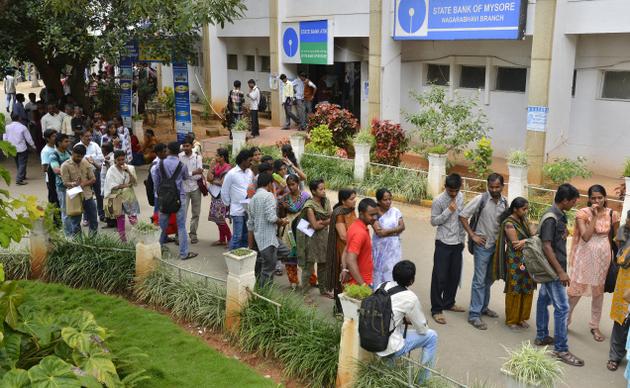 BANGALORE, August 28: The fact that there were over 3,600 applications for roughly 1,600 M.Com seats available ensured that the first day of counselling for M.Com extended well past the time allotted for it on Tuesday. It was also the second day of counselling for postgraduate (PG) courses of Bangalore University (BU).
BANGALORE, August 28: The fact that there were over 3,600 applications for roughly 1,600 M.Com seats available ensured that the first day of counselling for M.Com extended well past the time allotted for it on Tuesday. It was also the second day of counselling for postgraduate (PG) courses of Bangalore University (BU).
PG commerce seat aspirants were seen waiting patiently their turn on the Central College campus even at 7 p.m., when the counselling was supposed to end at 5.30 p.m.
The unprecedented demand for M.Com seats and the skewed ratio between demand and supply caused principals of several BU-affiliated college to make a beeline to the university to apply for enhancement in the number of seats.
B.S. Srikanta, principal, RBANMS First Grade College, and president of the Bangalore University First Grade College Principals’ Association (BUFGCPA), was successful in getting approval to increase the intake from 30 to 50 (50 per cent each for BU and management quotas).
“The number of applications for M.Com this time is at least 20 per cent more than last year. We heard that at least 20 colleges are seeking enhancement in intake,” said M. Jayappa, president of the Bangalore University Teachers’ Council of Commerce and Management.
Two factors
Citing the reasons for the surge in the number of applicants, Prof. Srikanta said that not only were the number of B.Com graduates up as intake had increased at the undergraduate level, but also demand for MBA had taken a beating. “Due to the versatility of employment opportunities available for commerce graduates, many B.Com graduates are also opting for M.Com,” he said. He added that there was a dearth of commerce lecturers in the State and many students were also aiming for lecturership when they took up M.Com.
However, M.K. Sridhar, former executive director of the Karnataka Knowledge Commission and reader in BU’s Canara Bank School of Management Studies, said there was no empirical basis to say that demand for MBA had gone down. “The shift in MBA is actually from substandard colleges to better colleges,” he said.
As for the “trend” of diminishing job opportunities for management students, Prof. Sridhar said “macro changes” in the industry, including lower attrition rates leading to fewer job openings, was a contributing factor.
